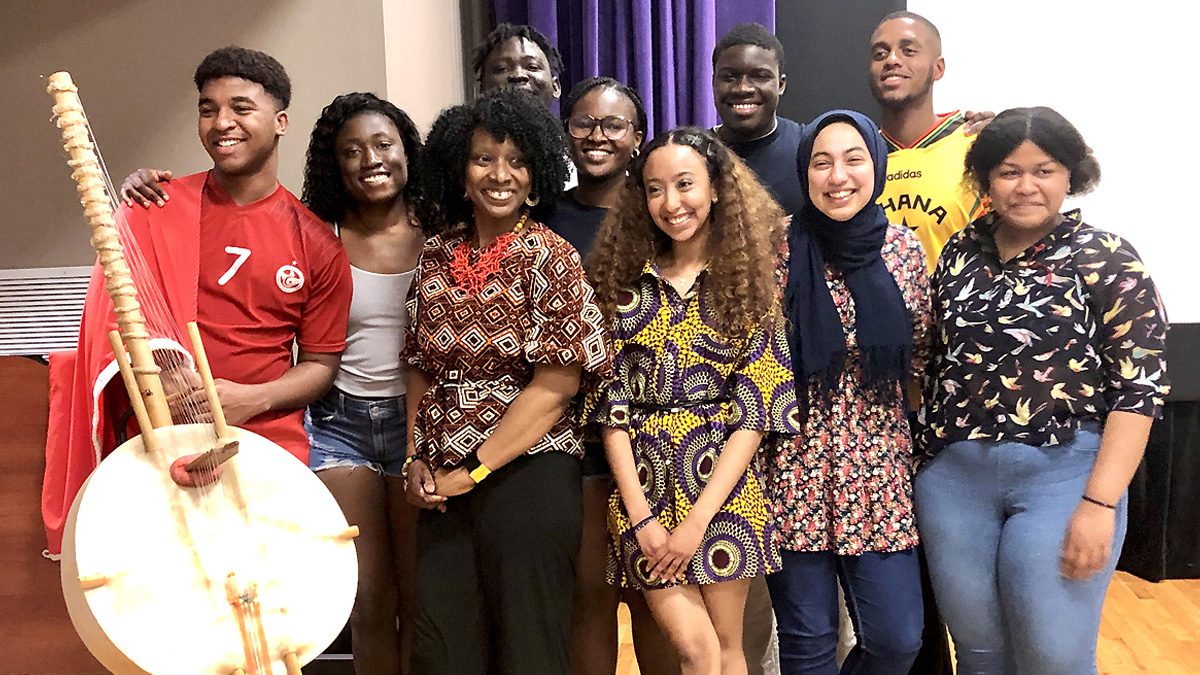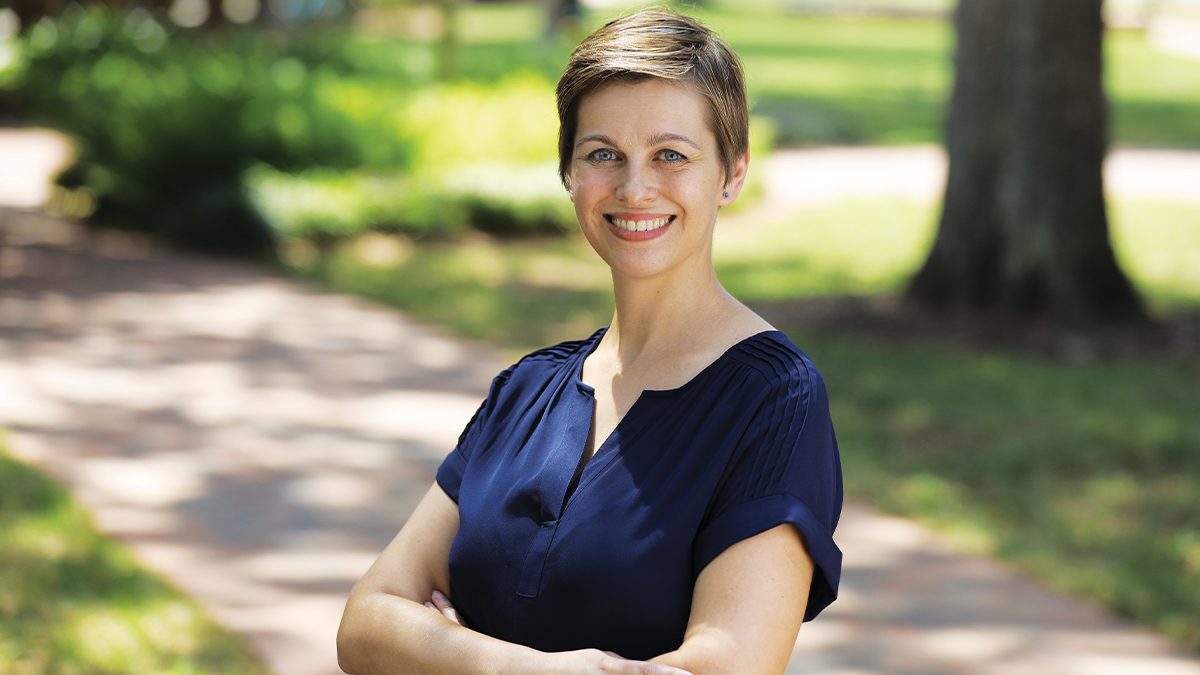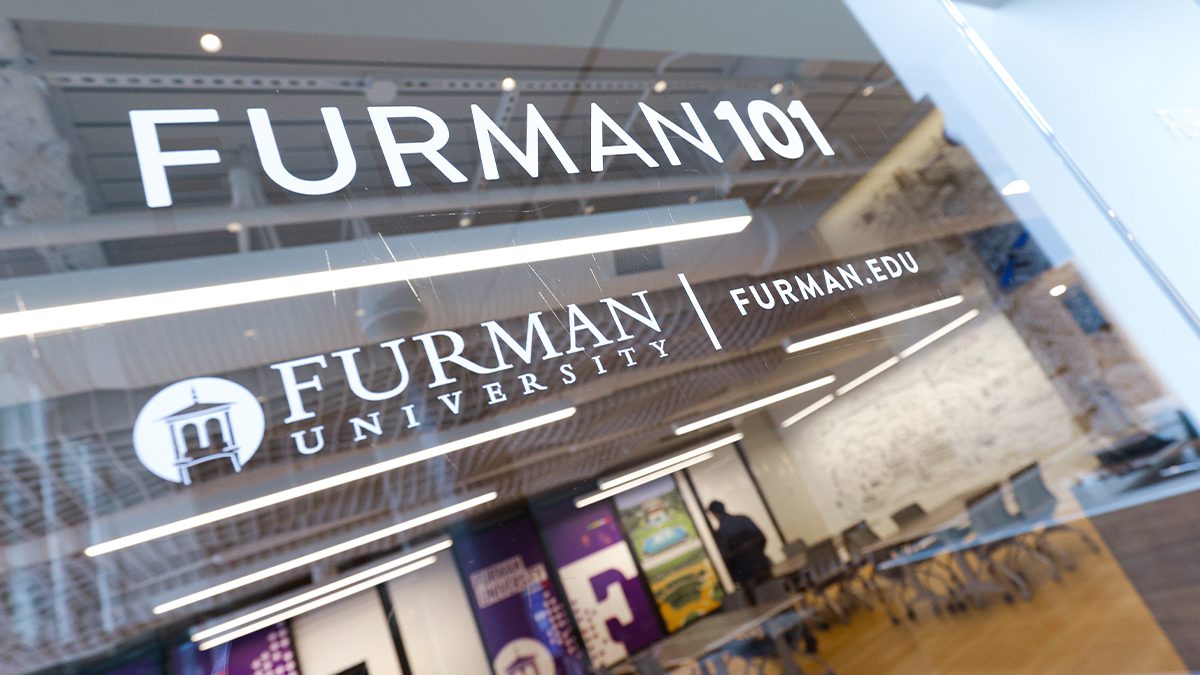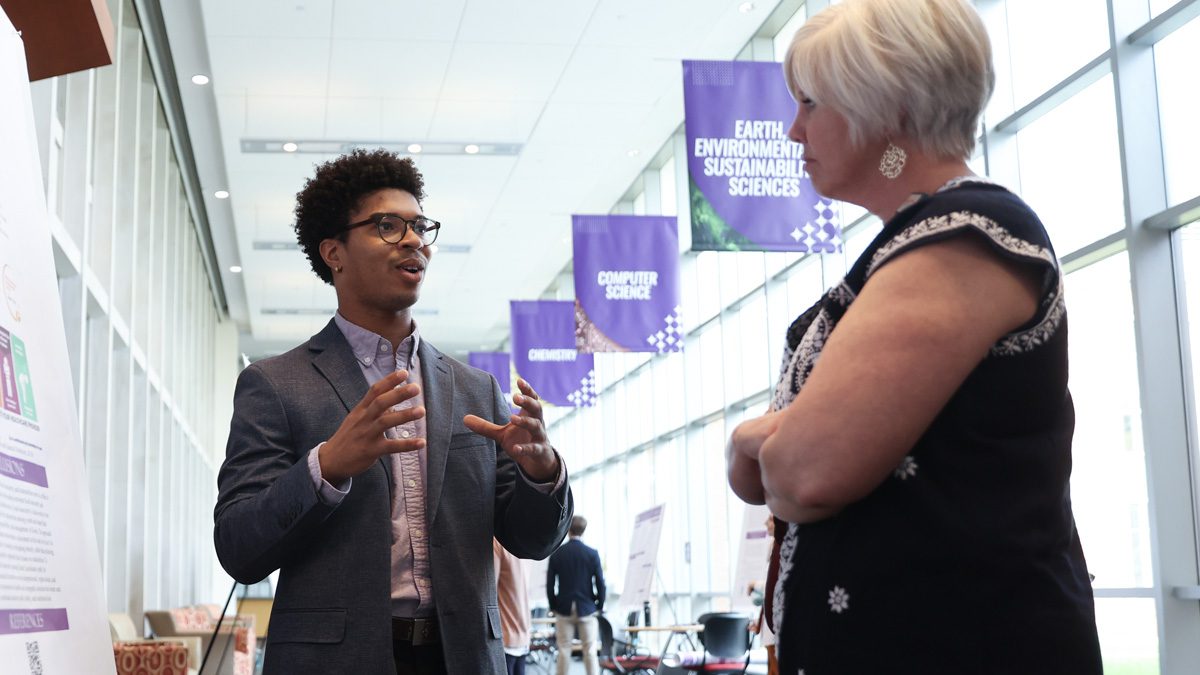
Around The Lake
A Reshaping of Narratives
Students from Africa invited their classmates to see their respective home countries, in some cases for the first time.
By Sarita Chourey
“Africans Do Not All Look Alike.” So stated the poster for an event organized by Furman’s Afrikiya student organization.
That such a statement is even necessary was just one of the lessons learned by those who attended a Cultural Life Program about the diversity of African countries represented on Furman’s campus. The students also shared their own distinct cultural traditions in food, dance, spoken word, history and economies of their respective homelands.
Soukeyna Pitroipa Djahira ’25 spoke of her life in Burkina Faso and gave a cultural overview of her home city, Ouagadougou.
“For me, it meant a lot to show my culture to the Furman community because not everyone knows where Burkina Faso is located or even knows that it is a country in Africa – plus my culture isn’t mainstream,” says Djahira, who is a Hearst Fellow and participates in Afrikiya, the Furman Student Activity Board and Furman’s International Student Association. “Presenting about my home country was a way to enlighten people on my African experience and, in addition, to empower the voices of my Burkinabe people.”
Ellis Edinkrah ’25 was pleased at the reception by his peers. “It was lovely to see so many people enthusiastic about learning about different cultures and norms,” he says. The physics and applied mathematics double major is a Hearst Fellow and member of the Society for Physics Students, the First-Generation Students Association and the Furman University International Students Association.
Among Edinkrah’s facts:
- Ghana is a country in West Africa with a population of 31 million people.
- It is the second-largest producer of the world’s cocoa.
- It is also the second-largest producer of gold in Africa and was nicknamed the Gold Coast by the British who were the then-colonial masters.
The revitalized student group, formally Baba Africa, but now named Afrikiya, sponsored the presentation on the African international student experience on March 24. Janet D. Kwami, an associate professor of communication studies, and Laura Baker, an outreach librarian and Pathways advisor, facilitated.
A lens that distorts
Jake Raine, a sophomore majoring in business, learned that various African nations place cultural meaning in distinctive fabrics unique to each nation. He compared the tradition to the absence of such a practice in his home country of England.
“(We) should all make a conscious effort to broaden our horizons and learn more about each individual country and stop treating that massive, beautiful continent as one big country!” Raine wrote in a reflection piece. Lola Reyes ’22 learned not only about African nations but became aware of false and dangerous narratives.
“I began thinking a lot about how the world abroad, and Africa specifically, is presented in America,” reflected Reyes. “It is always presented as very poor, dirty, and homogenous, when that is simply not the case.”
Perceptions of ‘others’
Kwami said such events give students a historical, social, political and cultural lens to understand Africa’s diversity and help to cultivate world citizenship by developing a better understanding of those who are different from them.
“It provides the opportunity for students to reflect upon practices that contour their perceptions of ‘others’ by centering African students’ culture and self-representation in an effort toward engaging students in the appreciation of the diversity and rich culture African students bring to Furman’s campus,” says Kwami.
“I believe such intercultural interactions and dialogue among students give voice to under-represented students, more specifically African students on campus, to share with pride their cultural heritage as a central part of their identity.”

Every first- and second-year Furman student participates in the Pathways Program, a new two-year course focused on mentoring, reflection and belonging.

